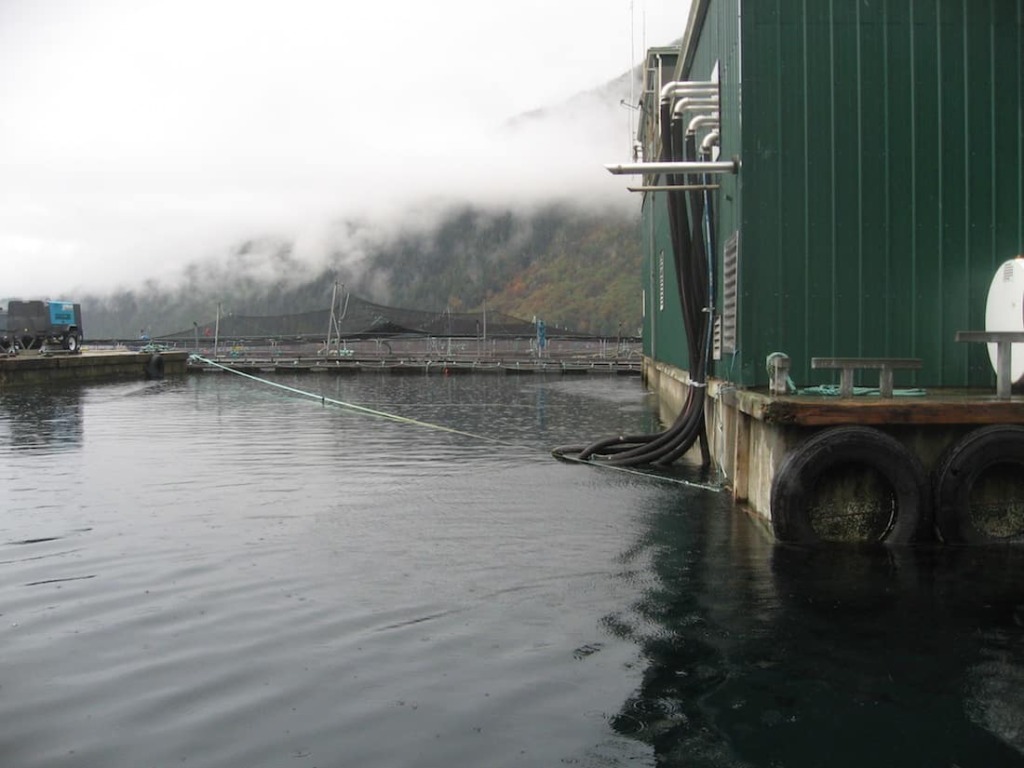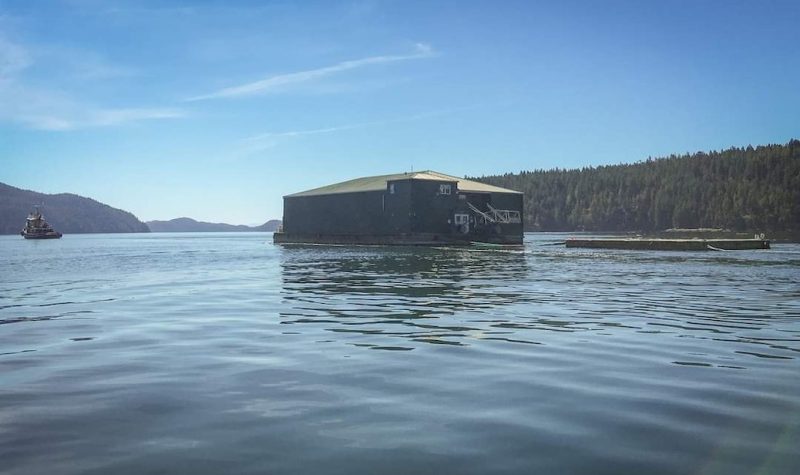Independent biologist Alexandra Morton posted a picture of the Raza Island fish farm leaving the Discovery Islands to her Facebook page on Aug. 5.
She later told CKTZ News that it was the last salmon farm to leave the southern Discovery Islands.
“Wild salmon are not surviving salmon farms anywhere in the world. I’m just shocked that this is even debated, but we have a Minister of Fisheries who took this seriously and has removed the salmon farms from the Discovery Islands,” said Morton.
She described migrating wild smolts being infected by sea lice as they passed Raza and other farms.
“I could see the print of that farm on the juvenile wild salmon, in the form of juvenile sea lice,” said Morton. “Sea lice are really easy to study on young wild fish because they change their body shape every few days for the first 30 days…”
As a result of Fisheries Minister Bernadette Jordan’s decision, there will be no salmon farms along the route of next year’s migration.
John Paul Fraser, executive director of the BC Salmon Farmers Association, said industry has “done all the science” necessary to justify its continued presence in the area.
“The fallout continues from the government’s decision, back in December 2020, to not extend the licenses of those farms in the Discovery Islands area. Soon after, we did issue a report that did detail the potential economic damage, both in terms of lost jobs, direct and indirect business activity and also lost animals. Well over 4 million smolts, that would otherwise have grown out and found themselves in sushi restaurants and dinner plates across Canada and elsewhere, have been euthanized,” said Fraser.
He stated the layoffs of fish farm personal started three to four months ago.

Phillips Arm Fish Farm during a 2016 visit. There were five people working from sunup to sundown on a cycle of eight days on, six days off. Photo by Roy L Hales.
Fraser described the government’s decision as an attempt to attract Vancouver votes in the next federal election.
“We intend by the time we have a new minister, or a new government - which is in the weeks or months ahead because there is very likely to be a federal election - we will be in a position to show the new minister the damage his predecessor has caused,” he said.
Morton described the “handful of low paying corporate jobs” this industry provides as insignificant compared to the damage it causes to wild fishery stocks, communities dependent of fishing, and wilderness tourism.
She also stressed the role that spawning wild fish play in fertilizing forests.
“They transport millions of tons of nitrogen from the ocean. You can actually see the growth rings of the trees are wider when wild salmon come in and feed those trees,” said Morton. “Farmed salmon do nothing to that dynamic. They in no way help us combat climate change.”


